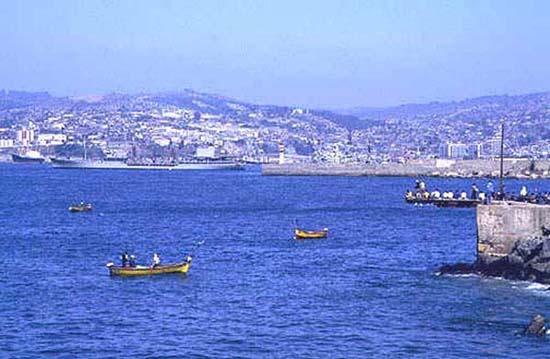
Richard Fienberg, Director of the APEC Study Center, was a PCV in Chile
Richard Fienberg
Curriculum Vitae, Dec. 2002
RICHARD E. FEINBERG
University Address:
University of California, San Diego
9500 Gilman Drive
La Jolla, CA 92093-0519
rfeinberg@ucsd.edu
858-534-7627
Home Address:
14708 Caminito Punta Arenas,
Del Mar, CA 92014
858-481-8015
Professor of International Political Economy and Director, APEC Study Center, University of California, San Diego (1996-present). Courses: Making U.S. Foreign Policy, U.S.-Latin American Relations, APEC and Regional Integration, Civil Society and Development. Co-founder of Leadership Council for Inter-American Summitry, a group of distinguished citizens from throughout the Americas. Coordinator of the APEC International Assessment Network (APIAN), a research coalition of APEC Study Centers.
Special Assistant to the President for National Security Affairs and Senior Director, Office of Inter-American Affairs, National Security Council, White House (1993-96). A principal architect of the 1994 Miami Summit of the Americas and of the Free Trade Area of the Americas. Responsible for initiating and coordinating U.S. policies in the Western Hemisphere, including trade, finance, political and security matters. Managed bilateral policies toward Chile, Guatemala, Mexico, Peru, Panama, among others.
President, Inter-American Dialogue (1992-93). Expanded this premier forum for sustained exchange among 100 leaders of the Western Hemisphere into a leading center for policy analysis focusing on U.S.-Latin American economic and political relations.
Executive Vice President and Director of Studies, Overseas Development Council (1982-91). Directed research projects on international finance, trade, third world development, and U.S. foreign policy toward developing countries. Networked with leading universities and research institutes throughout Latin America and the Caribbean.
Member, Policy Planning Staff, Department of State (1977-80). Responsible for Latin America and the Caribbean and some international economic issues.
Economist, U.S. Treasury Department, Office of Developing Nations Finance, Office of the Assistant Secretary for International Affairs (1975-77). Issues included Eximbank, trade finance, foreign debt rescheduling.
Consultant to the Ford Foundation, State Department, Inter-American Development Bank, the Latin American Economic System (SELA), and other philanthropic organizations and private firms.
Adjunct professor, Georgetown University School of Foreign Service, graduate-level course on international financial institutions (1980-85).
Volunteer, Peace Corps, Chile (1969-71).
Education
Stanford University, Ph.D. in international economics, 1978.
Brown University, B.A. cum laude in European history, 1969.
University College, University of London. Concentration in British history.
Horace Mann Preparation School, New York. President, student council.
Major Awards
Universidad de las Americas, Doctor Honoris Causa in International Relations, 1996.
"150 Who Make a Difference," National Journal, June 14, 1986.
Certification of Outstanding Performance, US Department of State, 1980.
Fellowships, from the Council on Foreign Relations (International Affairs Fellow), Woodrow Wilson International Center for Scholars, Smithsonian Institution, and Carnegie Endowment for International Peace, writing on US economic and security policies in developing countries (1980-82). Dissertation fellowship from the Brookings Institution on "The Export-Import Bank in the US Economy" (1974-75).
Recent Publications
"Comparing Regional Cooperation: APEC and the FTAA," Integration and Trade, Vol.4, No.10, 2000.
"Regimes of Cooperation in the Western Hemisphere: Power, Interests and Intellectual Traditions," (with Javier Corrales), International Studies Quarterly, March, 1999.
From Talk to Action: How Summits Can Help Forge a Western Hemisphere Community of Prosperous Democracies, principal author (Report of the Leadership Council for Inter-American Summitry, 1998).
Summitry in the Americas (Institute for International Economics, 1997).
"The Future of Regional Integration," in Annual World Bank Conference on Development in Latin America and the Caribbean, 1997 (The World Bank, 1998).
The Intemperate Zone: The Third World Challenge to U.S. Foreign Policy (W.W.Norton, 1983).
Public Appearances and Statements
Numerous expert testimony before committees of the U.S. Congress, frequent appearances on major media programs including The Lehrer News Hour, CNN (Spanish and English broadcasts), National Public Radio, network and local evening news. Opinion editorials in New York Times, Washington Post , Los Angeles Times, Miami Herald , Christian Science Monitor, Financial Times, San Diego Union-Tribune, Straits Times, El Universal of Mexico City. Two keynote addresses before the Latin American Studies Association annual meetings.
